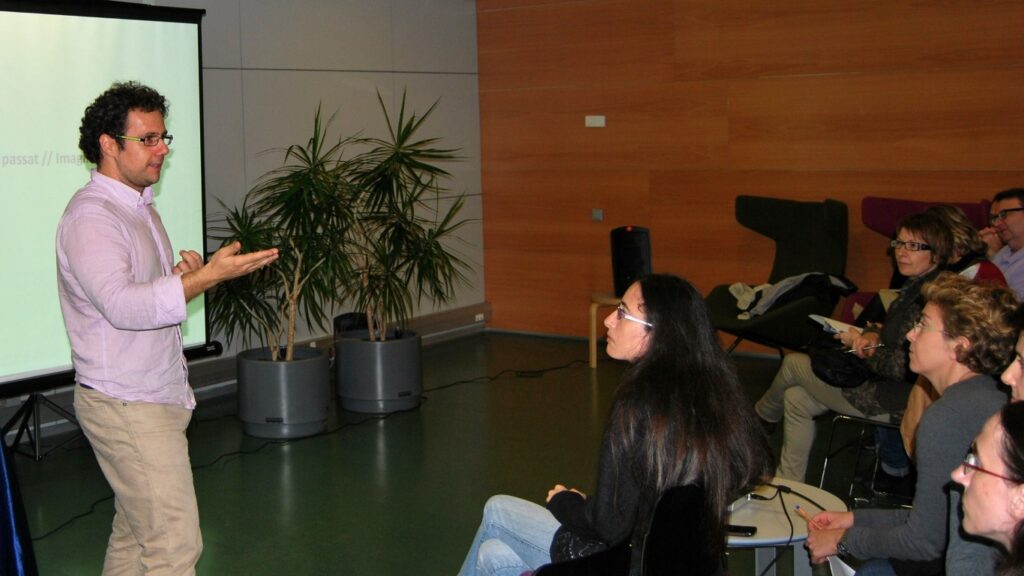The IDIBELL and UB researcher Lluís Fuentemilla gave a conference at the Bellvitge Library on November 20th in the frame of the Science Week about the research in the field of memory.
“What is memory? Is it something tangible or not? Why do we remember some things and not others? We will talk about the constitution of the memory”, introduced Dr. Fuentemilla. During the talk he made an experiment to check the memorial capacity of the participants who must try to memorize a list of related words. It showed that hearing words that we thought we had heard: it is the false memory.
Instead of raising the limits of memory, the researcher defined memory as a system comprising a coding that is processing the message, on the other hand, storage, involving a permanent record of information encoded, and finally the retrieval of information. It is usal to make an analogy between mind and computer, but it is not right. There are circumstances that change this fact: our minds do not work that way. We do not remember certain things because we do not encode the information properly. A typical case is “where I put the keys or the motorbike?”.
“Memory is divided into several functions”, explained the researcher. Memory can be declarative, which is divided into episodic memory, which refers to things that happened; semantic memory, which has to do with things that have not happened, i.e. who is the President of the USA, and working memory, used for short-term memory. There is also the non-declarative memory, such as the one we used when we learn to go by bike or drive, a learning-based memory.
“Our brain gives us the capacity to imagine other situations that we have not lived with very little information. We use to make decisions without complete information on the situation. We can go forward with the information we have in the past”, explained Fuentemilla.
Everything that we remember
You do not remember where the keys are but, later, you come up with where they were. How is it? This information has always been in the brain. One thing is what we have in the memory and another what we can remember. We have an enormous capacity to remember things.
“Our eyes do not deceive us. We have done research using eye movements. Even if a person does not remember, the eyes place where it was the required information”, said Fuentemilla about recent research developed.
There are aspects that are essential to memorize. “During the day, we accumulate information, and at night when we sleep, our learning process ends and root information of interest. Sleep helps the memorized process”, concluded the researcher.

